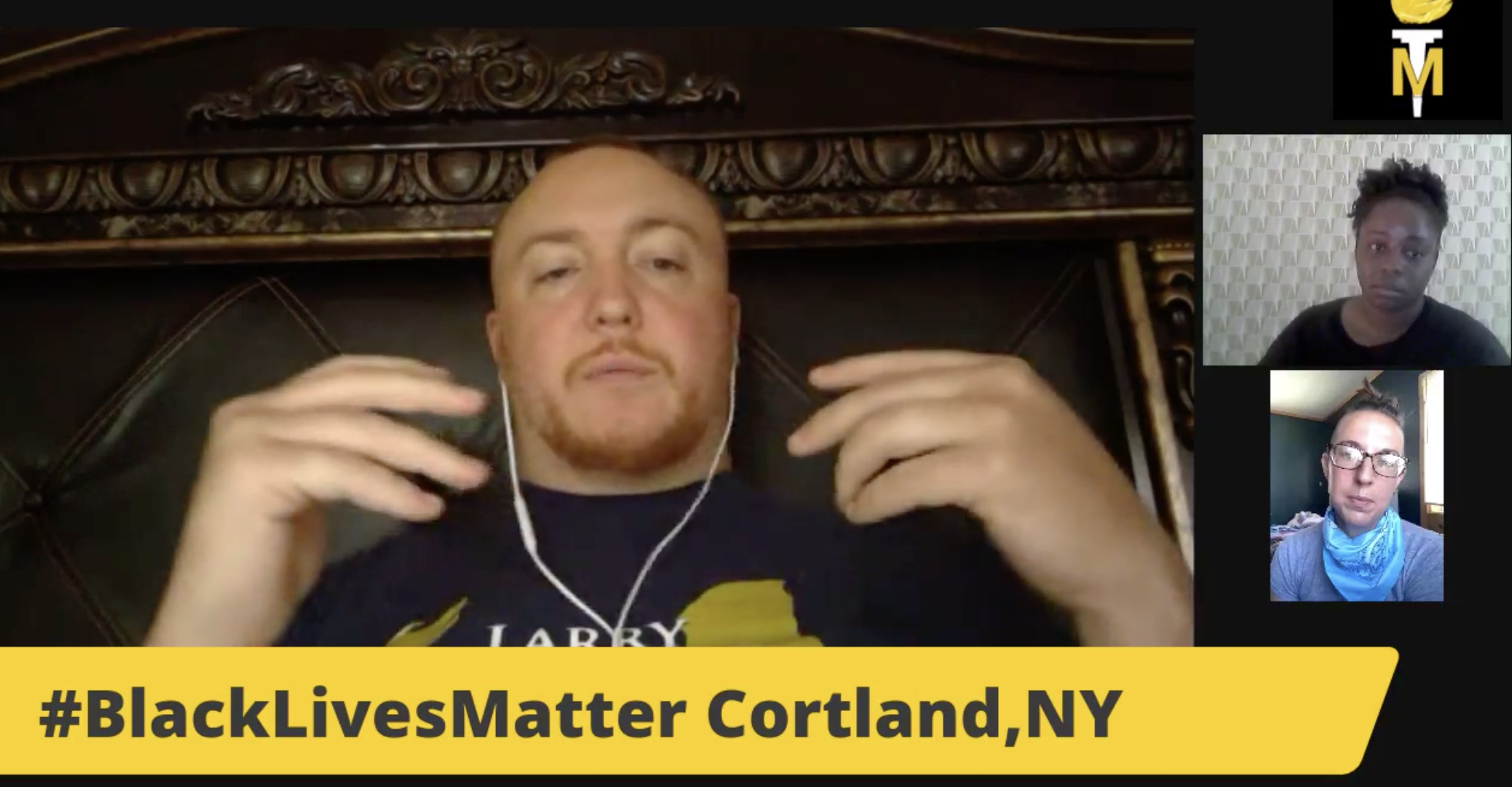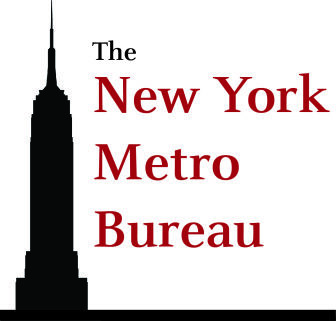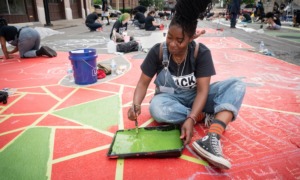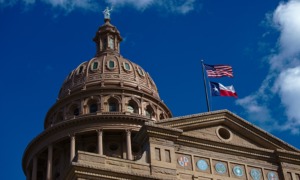
Screenshot/The Libertarian Marine
Melissa Kiser (top right) and Kristina Furi of Black Lives Matter in Cortland, N.Y., were guests on Matthew McIntyre’s podcast “The Libertarian Marine” on June 22.
CORTLAND, N.Y. — As the Black Lives Matter movement here looks to turn its public support into political momentum, local libertarians are making a late push to align themselves with the movement that nationally was sparked by youth activism.
The Libertarian Party in Cortland County — or the group of people trying to form it — has been slow to publicize its support for Black Lives Matter. At the center of this is state Assembly candidate Matthew McIntyre, who has actively reached out to the leaders of Black Lives Matter organizers in Cortland. He sees systemic police brutality against Black residents as a product of government overreach, the free market as an avenue for leveling the playing field and recent Black Lives Matters protests cut from the same cloth as “Reopen New York” protests, which Libertarians supported.
Many libertarians, including McIntyre, advocate for the decriminalization of nonviolent, victimless drug offenses and an end to the war on drugs. They also call for less government regulation on business, particularly business licensing.
Black Lives Matter organizers here are concerned about whether the libertarian support will be genuine in the long term, after the spotlight on protests and police reforms dims. Melissa Kiser and Steve Williams, two organizers of Black Lives Matter in Cortland, have spent the past few weeks educating themselves on libertarianism, how their views align and if a partnership will result in what Williams calls “piggyback protesting” — when movements and organizations use momentum from Black Lives Matter to advance their own agendas. 
It’s a concern that national leaders of the Black Lives Matter movement have about the Democratic Party. Some organizers, such as in Tampa, Fla., have soured on the Democratic alignment with the Black Lives Matter movement. They’re weary of Democratic politicians using outrage from their movement as a political tool.
But in Cortland, for the newly forming Libertarian Party, it boils down to the same question Kiser and Williams ask when politicians reach out as election season approaches: Where was the support before the police killing of George Floyd?
“[There’s] a fear of hijacking the movement,” Williams said on June 16. “Like I said, I can’t speak too intelligently to libertarian affairs, but knowing how they define themselves, and being to the protests I’ve been to, it’s the fear of the movement being hijacked.”
But Kiser and Williams are lending their ear to McIntyre for now, in part because America’s two-party system leaves few people excited about the two presidential candidates, they said.
“I want to see what your five-year plan is for minorities and I want to see what your five-month plan is for Black Lives Matter,” Kiser said of politicians aligning themselves with Black Lives Matter. “I want to see it and I want to see you start doing it. That’s what I need. I don’t need any more overtures, I don’t want you to put up signs on your lawn, posting stuff on your website.”
The 80/20 rule
In Cortland County, 800 of the 48,300 residents are Black and 898 are biracial or multiracial. Kiser and Williams have previously described a need for more Black teachers and counselors in schools, more Black legislators in city and county government and police reform that includes accountability and transparency in Cortland’s police department. So far, both the city of Cortland and Cortland County, which are separate entities, have made their use-of-force policy public, and the city council agreed to paint “Black Lives Matter” on a downtown street. The largest police reforms in Cortland County stem from Albany.
The Libertarian support for Black Lives Matter mirrors the party’s statewide and national platform. Larry Sharpe, the Libertarian candidate for New York governor in 2018, has advocated for breaking police departments into different sectors that serve more concentrated needs, including mental health.
“We generally agree on the activism part,” Sharpe said of Black Lives Matter. “Not the political part.” He meant that Black Lives Matter is often linked to candidates who are Democrats, not Libertarians. Jo Jorgenson, the Libertarian presidential nominee, recently tweeted, “I am the Libertarian candidate. #BlackLivesMatter, and I am committed to governance that reflects that.”
McIntyre equates the Black Lives Matter movement with the Reopen New York rally because both problems, he said, were rooted in government overreach.
“These are very very big issues, these are very very powerful groups,” he said in a separate interview. “And their message is exactly the same thing: smaller government and less overreach and more liberty. But they’re seen as different because of the narratives that have been spun.”
Kiser and Williams have said Black Lives Matter and Reopen New York are completely different.
There are stances that Kiser is non-negotiable on, making the 80/20 rule — which McIntyre has described as agreement on 80% of a politician’s views equating to political alignment — problematic for her. She also is concerned that this is the first time the Libertarian Party had reached out to Black Lives Matter.
But Kiser said while the stakes are high in this presidential election, she is interested in working with McIntyre. She has not endorsed him.
“I think I would love to work with Matthew and see where things continue to go,” she said.































